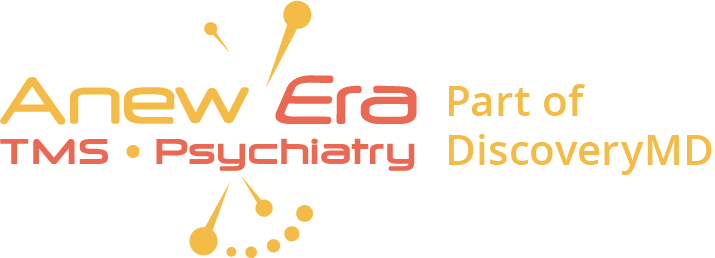Psychiatric Evaluation & Diagnosis: When You Need One
If you or a family member are struggling with mental health, you may be wondering if a psychiatric evaluation and diagnosis is necessary. Here we will discuss what a psychiatric evaluation is, the different types of assessment tools available, and when to seek help from a mental health professional.
What is a Psychiatric Evaluation?
A psychiatric evaluation is a process used to assess an individual’s mental health. The evaluation includes a review of the person’s symptoms, medical history, family history, and any other relevant information. The goal of the evaluation is to determine if the person has a mental health condition and, if so, what type of condition it is.
There are two main types of psychiatric evaluations: clinical interviews and psychological testing. Clinical interviews are conducted by a mental health professional and usually involve questions about the person’s symptoms, thoughts, feelings, and behaviors.Psychological testing may also be used to assess certain aspects of mental functioning. This can include tests of intelligence, memory, and personality.
At Anew Era TMS & Psychiatry, we want to make sure that your treatment is specific to your needs. Therefore, your Mental Health evaluation will include several steps. Evaluations typically consist of a written questionnaire, interview questions, lab tests, and physical examination. Commonly used tools for diagnosis of mental disorders that we use include:
- Patient Health Questionnaire (PHQ-9) – the most common screening tool to identify depression
- Columbia-Suicide Severity Rating Scale (C-SSRS) – used to assess suicide risk
- GAD7 – a screening tool and symptom severity measure for the four most common anxiety disorders (generalized anxiety disorder, panic disorder, social phobia(s), and post-traumatic stress disorder)
What’s the Difference Between a Mental Health Assessment and a Psychiatric Evaluation?
A mental health assessment and a psychiatric evaluation are both important tools that can be used to help someone with a mental illness. However, there are some key differences between the two.
A mental health assessment is usually conducted by a primary care physician or other medical professional. This type of assessment is typically done when someone is first seeking help for their mental illness. It is generally shorter and less intensive than a psychiatric evaluation.
A psychiatric evaluation, on the other hand, is usually conducted by a psychiatrist or other mental health professional. This type of evaluation is generally more comprehensive and may include testing, interviews, and observations. Psychiatric evaluations are often used to diagnose mental illnesses and to develop treatment plans.
When to Seek Help from a Mental Health Professional
There are many different reasons why someone might seek help from a mental health professional. Some people may be experiencing symptoms that are interfering with their daily life, such as depression or anxiety. Others may have a history of mental illness in their family and want to get checked out. Still others may be struggling with substance abuse or other behavioral problems.
If you are concerned about your mental health, it is important to seek help from a qualified professional.
In addition, there are certain situations in which a mental health evaluation is recommended. If you are experiencing suicidal thoughts or have made a suicide attempt, if you are having difficulty functioning in your daily life, or if you have been diagnosed with a medical condition that can affect your mental health, an evaluation may be recommended.
For example, an evaluation may be recommended if you are:
- Experiencing suicidal thoughts
- Have made a suicide attempt
- Having difficulty functioning in your daily life
- Diagnosed with a medical condition that can affect your mental health
Types of Mental Health Conditions
There are many different types of mental health conditions that can be diagnosed during a psychiatric evaluation. These include anxiety disorders, mood disorders, psychotic disorders, eating disorders, and substance abuse disorders. Each type of disorder has its own set of symptoms and requires different treatment.
Anxiety Disorders
Anxiety disorders are the most common type of mental health disorder. They are characterized by intense feelings of fear, worry, and anxiety. Common types of anxiety disorders include generalized anxiety disorder, panic disorder, and social anxiety disorder. OCD is also considered an anxiety disorder.
Mood Disorders
Mood disorders are characterized by extreme changes in mood. Examples of mood disorders include bipolar disorder and depression.
Psychotic Disorders
Psychotic disorders are characterized by hallucinations or delusions. Schizophrenia is the most well-known type of psychotic disorder. Other types of psychotic disorders include schizoaffective disorder and bipolar disorder with psychotic features.
Eating Disorders
Eating disorders are characterized by abnormal eating habits and severe body image issues. Anorexia nervosa and bulimia nervosa are the two most common types of eating disorders.
Substance Abuse Disorders
Substance abuse disorders involve the excessive use of drugs or alcohol. These disorders can lead to addiction and/or other serious problems.
Treatment for Mental Health Conditions
The treatment for a mental health condition will vary depending on the type of condition.
Anxiety disorders are typically treated with therapy, medication, or both. Mood disorders may be treated with therapy, medication, or electroconvulsive therapy (ECT). Psychotic disorders are usually treated with medication and/or hospitalization.
Eating disorders are treated with a combination of therapies, including cognitive-behavioral therapy (CBT), interpersonal therapy (IPT), and family-based therapy (FBT).
Substance abuse disorders are treated with detoxification, rehabilitation, and 12-step programs.
Transcranial Magnetic Stimulation (TMS) is a new, FDA-approved treatment for depression, and is considered a promising alternative to medication and ECT.
If you think you or someone you know may have a mental health disorder, it is important to seek professional help. A mental health evaluation can provide an accurate diagnosis and appropriate treatment.
Scheduling a Psych Evaluation
If you are interested in scheduling a psych evaluation, you can contact your primary care provider, a mental health professional, or a psychiatric hospital. Your insurance company may also be able to provide you with a list of qualified providers in your area.
When scheduling an appointment, be sure to ask about the provider’s qualifications, experience, and approach to treatment. You should also inquire about the length and cost of the evaluation.
It is important to remember that mental health evaluations are confidential. This means that your provider cannot release any information about you without your consent.
When you receive a diagnosis, you and your provider can develop a treatment plan that meets your needs. With proper treatment, most people with mental health disorders can lead happy, healthy, and productive lives.
Contact Anew Era TMS & Psychiatry for a Psych Evaluation
Anew Era TMS & Psychiatry offers psychiatric evaluations to help individuals understand their mental health. Our providers are qualified and experienced in mental health diagnosis and treatment. We offer confidential evaluations at a reasonable cost and work with most major insurance providers.
Contact us today to schedule an appointment.





